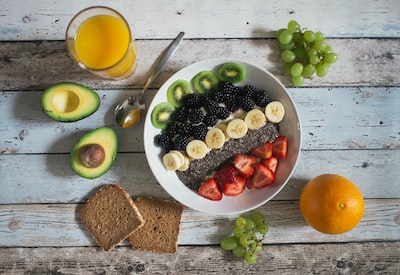In a world full of culinary delights, it can be hard to navigate the complex landscape of what is safe to eat raw. Some foods, in their uncooked state, can pose serious health risks and should be approached with caution.
As we strive for a healthier lifestyle, it is important to be aware of the potentially dangerous foods that are best consumed cooked. From raw eggs and unpasteurized dairy products to undercooked meats and certain types of fruits and vegetables, the list of risky raw foods is extensive.
But fear not, for there are plenty of delicious and nutritious options that are not only safe to eat raw, but also pack a powerful punch of vitamins, minerals, and antioxidants. So, put down that raw chicken breast and reach for a handful of raw almonds or a juicy slice of watermelon instead.
Your body will thank you for it. Stay tuned for our list of 7 must-cook foods for a healthier you!

Why Cooking Matters
By choosing nutrient-rich foods like leafy greens, lean proteins, whole grains, healthy fats, colorful fruits, and powerful spices, you give your body essential vitamins, minerals, and antioxidants. Leafy greens, such as kale and spinach, are packed with nutrients like vitamin K and folate. Lean proteins like chicken and tofu help with muscle growth and repair. Whole grains like quinoa and brown rice give you sustained energy and fiber to keep you full.
Healthy fats from sources like avocados and nuts are important for heart health. Colorful fruits like berries and citrus fruits add natural sweetness and a variety of vitamins. Lastly, adding powerful spices like turmeric and cinnamon not only boosts flavor but also has extra health benefits.
Leafy Greens: Loaded with Nutrients
Leafy greens like spinach, kale, arugula, and collard greens are packed with vitamins like A, C, and K, plus minerals such as iron and calcium. They offer many health benefits, from boosting immunity to supporting bone health and improving skin. These veggies can easily be added to various dishes for extra nutrition, adding crunch and color.
One reason why leafy greens are important is their high fiber content. Fiber helps with digestion, prevents constipation, and regulates blood sugar levels. It can also lower cholesterol and aid in weight loss by keeping you full. Including leafy greens in your meals improves overall health and well-being, making them vital for a balanced diet.
Lean Proteins for Muscle Building
Lean proteins provide amino acids essential for bodily functions, like enzyme production and tissue maintenance. Including chicken, turkey, fish, tofu, or beans in your diet can help boost metabolism and aid weight management. In addition, lean proteins keep you full and satisfied, enhancing balanced meals. Eating lean proteins can regulate blood sugar levels and lower the risk of chronic diseases like diabetes and heart conditions. Choosing lean protein sources over high-fat or processed options optimizes nutrient intake and supports long-term health goals.
Grilling, baking, or sautéing lean proteins in meals enhances both nutrition and flavor, making them a must-cook for health-conscious individuals.
Whole Grains for Sustained Energy
By incorporating whole grains like brown rice, quinoa, oats, and whole wheat into your diet, you can lower the risk of heart disease, type 2 diabetes, and certain cancers. Whole grains offer sustained energy levels and promote a feeling of fullness, aiding in weight management. Switching from refined grains to whole grains can improve digestion, reduce inflammation, and enhance gut health.
Choosing whole grains supports your body’s needs by providing valuable antioxidants and phytochemicals that protect cells and reduce inflammation. With their high fiber content, whole grains promote a healthy gut microbiome, leading to better digestion and improved nutrient absorption. Including whole grains in your meals stabilizes blood sugar levels and prevents energy crashes, making them a crucial component of a balanced and healthy diet.
Healthy Fats for Heart Health
According to the American Heart Association, incorporating sources of healthy fats like avocados, nuts, seeds, and olive oil into your diet can have a positive impact on your cardiovascular health. These fats can help lower bad cholesterol levels and improve overall heart function. The American Heart Association provides further guidance on the importance of including healthy fats in your diet to protect your heart. For more information on heart-healthy eating recommendations, visit the American Heart Association website.
Colorful Fruits: Nature’s Candy
Berries like blueberries and strawberries are rich in antioxidants, protecting the body from oxidative stress. Citrus fruits like oranges and grapefruits are full of vitamin C, vital for the immune system and skin health. Tropical fruits such as mangoes and papayas offer a good amount of vitamin A for healthy vision and skin.
Eating fruits can lower the risk of heart disease, stroke, and cancer. The American Heart Association suggests adding colorful fruits to your daily diet for their various nutrients. Different colored fruits provide a wide range of vitamins, minerals, and phytochemicals that work together to promote overall health.
Powerful Spices for Flavor and Health
Turmeric contains curcumin, a powerful compound that has been shown to reduce the risk of chronic diseases. Additionally, cinnamon has been found to improve blood sugar control and lower cholesterol levels. Ginger is known to help with nausea and aid digestion, which can benefit gastrointestinal health. Furthermore, cayenne pepper has the ability to boost metabolism and aid in weight management. Garlic is another spice that has been shown to boost the immune system and may also help to lower blood pressure. By incorporating a variety of these spices into your cooking, you can not only enhance the flavor of your meals but also support your overall well-being.
Overview
As we wrap up our list of the top 10 foods you should always cook, it’s important to remember the importance of home cooking in today’s fast-paced world. From the humble potato to the complex artichoke, each of these foods offers unique flavors and health benefits that can only be fully realized when prepared with care and attention.
So next time you’re tempted to reach for that frozen dinner or takeout menu, consider taking the time to cook one of these delicious and nutritious ingredients instead. Your taste buds, your body, and your wallet will thank you.
Happy cooking!






